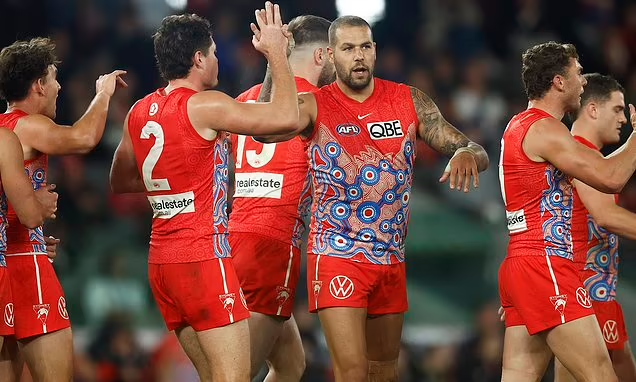
Essendon forward Peter Wright acknowledges the need for players to adapt to the evolving interpretation of head-high hits in AFL, following his recent suspension handed down by the AFL Tribunal.

Wright received a four-match suspension on Tuesday night for his airborne collision that resulted in Sydney defender Harry Cunningham being concussed. Similarly, St Kilda forward Max King’s attempt to overturn a one-match ban for his head-high bump on Collingwood’s Finlay Macrae was unsuccessful.
These incidents are part of a trend where players are being held accountable for head-high bumps, as the AFL aims to minimize concussions in the sport.
Recent cases such as St Kilda’s Jimmy Webster receiving a seven-match ban for his pre-season bump on North Melbourne’s Jy Simpkin, and Port Adelaide’s Sam Powell-Pepper’s four-match suspension for a bump on Adelaide’s Mark Keane, underscore this crackdown.
While Essendon argued for a reduced ban for Wright, citing his efforts to avoid a more severe injury to Cunningham and his prompt apology to his opponent, the Tribunal’s firm stance signals the necessity for players to adjust their approach to certain contests.
Expressing disappointment over his suspension, Wright emphasized the changing standards in how the game is officiated and stressed the importance for all players to adapt accordingly.

Similarly, King found himself caught in the AFL’s crackdown when his shoulder made incidental contact with Macrae’s head during a bump. Despite arguing that he anticipated a different outcome, King accepted the Tribunal’s decision, acknowledging his responsibility to be more aware of the game situation.
The Tribunal’s rulings serve as a reminder to players of the heightened scrutiny on head-high incidents, prompting a reassessment of their on-field actions to align with evolving standards and safeguard player welfare.






